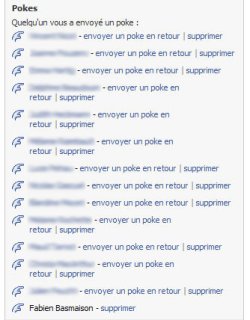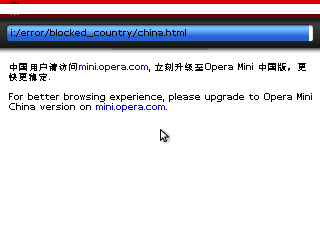Back to the roots
For those who didn’t follow the whole story, here are reminders:
- I logged on Facebook in 2007, a short while after I arrived in China;
- I asked for my account suppression from Facebook in February; it became
(thanks to superbobob for the screenshot).
I decided to leave Facebook for a few reasons, I explained them in a mail to one of my Facebook friend:
I’m leaving facebook because I believe my friends are more outside this computer and I tend to spend too much time wandering on Facebook.
I’m quite curious, that is; I’ve been thinking about doing so quite a lot of time without do[i]ng it, so.
Another reason is that I’m a bit tired of the noise, I suppose.I don’t feel like deleting people from my "friends" since I actually know or at least met nearly all the people in my "friends" and I would feel a bit guilty to choose which one deserves more than another; so I just leave Facebook, and I leave a trace too. People who’ll be willing to keep in touch can, the others will slowly fade and maybe re-appear one day.
Anyway, I’m not hard to find on the Web...The last drop is Facebook claiming "your rights belong
sto us". Well... I believe I can live without Facebook. :)
Though it was a bit too much of a knee-jerk reaction, since I could have just slowed down my frenzy in following the informations, I was just tired of this semi-public space, added the reasons mentioned previously. I am just too curious and care about the people, so...
Back to where it began
The next step was to create a new account; this is exactly what I did on the 19th of November.
It’s about memory, not actuality
I’m somehow citing an excellent article from Don Normal, here, thanks to Stéphane.
People are submerged with information. One thing that surprised me is the people asking me what happened that I ask them to be their "friend" again. They either look somehow "offended" ("Did you delete me from your friends?") or just wonder what kind of bug happened so that I was not in their contacts any more.
My point here is: "those friends on Facebook didn’t even notice I was gone though we’ve been keeping in touch by other means of communication!". So when I hear or read from someone that they need Facebook to keep in touch, I am (and was before leaving) wondering: "Are you kidding me?" You just don’t keep in touch with people thanks to Facebook, you just keep in touch with them no matter what if you share a reciprocal interest. There’s plenty of solutions that are more reliable than this, especially when you live in China.
Stephanie recently published a Social Media Survival Kit and an excellent chronicle dealing with Internet and social medias. She brings up the fact that problems don’t rely on the service, but how we use it. Rinse and repeat the first article’s first rule: "You do not have to read everything."
There’s of course a strong business behind, and people are somehow forced to pay attention to this torrent of constantly changing informations; the socially viral enforcement created by social medias is clever; they know who they’re dealing with: human can be so predictable sometimes. And the need I was mentioning is sometimes true. Imagine how some people were annoyed when Facebook got blocked in China.
The frenzy has to stop, I’m just starting to learn how to manage my online presence after many years on Internet. Rinse and repeat the first article’s first rule: "You do not have to read everything."

